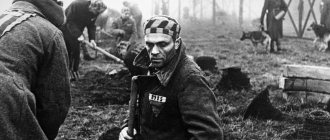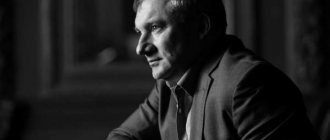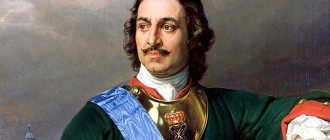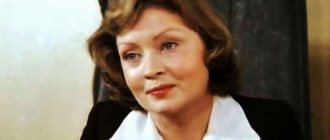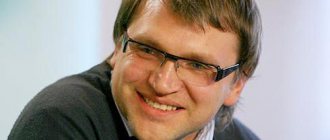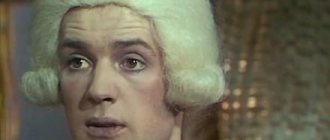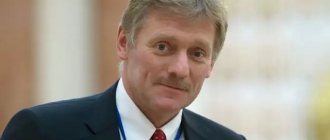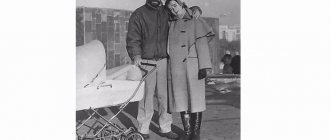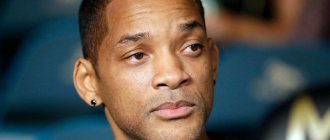Biography of Nicholas II
Nicholas II is the last Russian Tsar who abdicated the throne and was executed by the Bolsheviks, later canonized by the Russian Orthodox Church. His reign has been assessed in various ways, from harsh criticism and statements that he was a “bloody” and weak-willed monarch, responsible for the revolutionary disaster and the collapse of the empire, to praise of his human virtues and statements that he was an outstanding statesman and reformer.
In the photo: Nicholas II
During his reign, there was an unprecedented flourishing of the economy, agriculture, and industry. The country became the main exporter of agricultural products, coal mining and iron smelting increased fourfold, electricity generation increased 100 times, and the gold reserves of the state bank more than doubled. The Emperor was the founder of Russian aviation and the submarine fleet. By 1913, the empire entered the top five most developed countries in the world.
Childhood and adolescence
The future autocrat was born on May 18, 1868 at the country residence of Russian rulers in Tsarskoe Selo. He became the first-born of Alexander III and Maria Feodorovna among their five children and the heir to the crown.
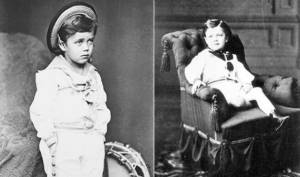
Future autocrat Nicholas II in childhood
His main educator, according to the decision of his grandfather, Alexander II, became General Grigory Danilovich, who held this “position” from 1877 to 1891. Subsequently, he was blamed for the shortcomings of the complex character of the emperor.
Since 1877, the heir received home education according to a system that included general education subjects and lectures in higher sciences. Initially, he mastered the visual and musical arts, literature, historical processes and foreign languages, including English, Danish, German, and French. And from 1885 to 1890. studied military affairs, economics, and jurisprudence, which were important for royal activities. His mentors were prominent scientists - Vladimir Afanasyevich Obruchev, Nikolai Nikolaevich Beketov, Konstantin Petrovich Pobedonostsev, Mikhail Ivanovich Dragomirov, etc. Moreover, they were only obliged to present the material, but not to test the knowledge of the heir to the crown prince. However, he studied very diligently.
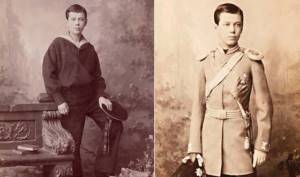
Nicholas II in his youth
In 1878, an English teacher, Mr. Karl Heath, appeared among the boy's mentors. Thanks to him, the teenager not only mastered the language perfectly, but also fell in love with sports. After the family moved to the Gatchina Palace in 1881, not without the participation of the Englishman, a training room with a horizontal bar and parallel bars was equipped in one of its halls. In addition, together with his brothers, Nikolai rode horses well, shot, fenced, and became well developed physically.
In 1884, the young man took the oath of service to the Motherland and began service, first in Preobrazhensky, and 2 years later in His Majesty’s Life Guards Hussar Regiment.
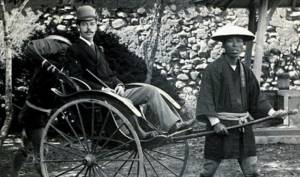
Nicholas II in his youth
In 1892, the young man earned the rank of colonel, and his father began to introduce him to the specifics of governing the country. The young man took part in the work of Parliament and the Cabinet of Ministers, visited different parts of the monarchy and abroad: Japan, China, India, Egypt, Austria-Hungary, Greece.
"Children's Portrait of Nicholas II" by Laurits Tuxen (1883)
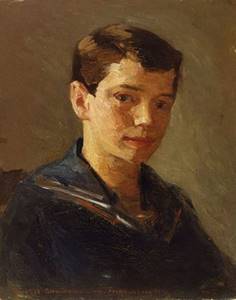
Nicholas II was born on May 18, 1868 in Tsarskoe Selo. He received a good education at home according to a specially written program - he studied economics, law, political history, military affairs and languages. Among his teachers were the composer Caesar Cui, who was also a great specialist in fortification, the famous lawyer Konstantin Pobedonostsev, the chemist Nikolai Beketov and others. True, they only gave lectures to the heir to the throne - teachers did not have the right to check the material learned. Nevertheless, Nicholas II studied diligently. As Grand Duke Alexander Mikhailovich recalled: “On the eve of completing his education, before joining the Life Hussar Regiment, the future Emperor Nicholas II could mislead any Oxford professor who would have mistaken him, based on his knowledge of the English language, for a real Englishman.” Fifteen-year-old Nicholas II, who had not yet taken the oath of service to the Motherland, was painted by the court artist of his father Alexander III, Laurits Tuxen.
Tragic accession to the throne
On November 1, 1894, at 2:15 a.m. in Livadia, Alexander III died of kidney disease, and an hour and a half later, in the Church of the Exaltation of the Cross, his son swore allegiance to the crown. The coronation ceremony - the assumption of power along with the corresponding attributes, including the crown, throne, scepter - took place in 1896 in the Kremlin.
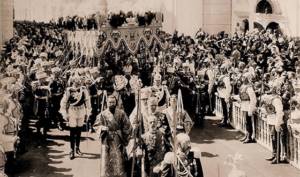
Coronation of Nicholas II
It was overshadowed by the terrible events on the Khodynka field, where festivities were planned with the presentation of 400 thousand royal gifts - a mug with the monogram of the monarch and various delicacies. As a result, a million-strong crowd of people wishing to receive gifts formed on Khodynka. The result was a terrible stampede that claimed the lives of about one and a half thousand citizens.
Having learned about the tragedy, the sovereign did not cancel the festive events, in particular, the reception at the French embassy. And although he later visited victims in hospitals and financially supported the families of the victims, he still received the popular nickname “Bloody.”
Wife of Nicholas II
Nikolai met his future wife in 1884, when he was 16 years old. The strong friendship that arose between him and Alice of Hesse-Darmstadt eventually grew into a great feeling. Having become an adult, Nikolai asked his father’s blessing to marry the princess, but was refused due to the fact that the parent considered his son too young. Years passed, but Nicholas’s determination to marry Alice did not disappear, and in 1894, Alexander III still blessed his son’s desire.
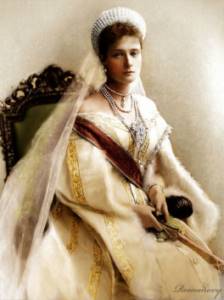
The wife of Nicholas II is Alexandra Fedorovna. Photo: livejournal.com
However, Nikolai's joy was overshadowed by a sad event - soon after this his father died. Nevertheless, the wedding was not postponed, but passed off modestly.
At the same time, the young emperor’s accession to the throne took place. In 1896, Nicholas was officially crowned on Khodynskoye Field. This solemn event was overshadowed by tragedy: due to the fact that people crowded each other, wanting to receive the promised gifts, several thousand people died.
Reign
In domestic politics, the young emperor maintained his father's commitment to traditional values and principles. In his first public speech in 1895 in the Winter Palace, he announced his intention to “protect the principles of autocracy.” According to a number of historians, this statement was negatively received by society. People doubted the possibility of democratic reforms, and this caused an increase in revolutionary activity.
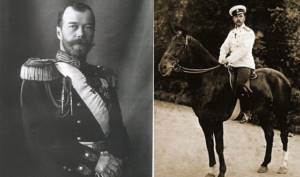
Nicholas II remained committed to traditional values and principles
However, after his father’s counter-reforms, the last Russian Tsar began to maximally support decisions to improve the people’s life and strengthen the existing system.
Among the processes introduced under him were:
- population census;
- introduction of gold circulation of the ruble;
- universal primary education;
- industrialization;
- limitation of working hours;
- workers' insurance;
- improving soldiers' allowances;
- increasing military salaries and pensions;
- religious tolerance;
- agrarian reform;
- large-scale road construction.
Rare newsreel with Emperor Nicholas II in color Due to growing popular unrest and wars, the reign of the emperor took place in a very difficult situation. Following the demands of the time, he granted his subjects freedom of speech, assembly, and press. The State Duma was created in the country, which performed the functions of the highest legislative body. However, with the outbreak of the First World War in 1914, internal problems worsened even more, and mass protests against the authorities began.
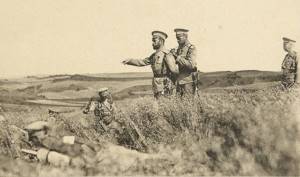
Emperor Nicholas II on maneuvers (1913)
The authority of the head of state was also negatively affected by military failures and the emergence of rumors about the interference in the governance of the country by various fortune tellers and other controversial personalities, especially the main “adviser to the Tsar” Grigory Rasputin, who was considered by most citizens to be an adventurer and rogue. The mystery of Emperor Nicholas II's abdication of the throne In February 1917, spontaneous riots began in the capital. The monarch intended to stop them by force. However, an atmosphere of conspiracy reigned at Headquarters. Only two generals expressed their readiness to support the emperor and send troops to pacify the rebels; the rest were in favor of his abdication. As a result, in early March in Pskov, Nicholas II made the difficult decision to abdicate in favor of his brother Mikhail. However, after the Duma refused to guarantee his personal safety if he accepted the crown, he officially renounced the throne, thereby putting an end to the thousand-year Russian monarchy and the 300-year reign of the Romanov dynasty.
About the childhood of Emperor Nicholas II
Vladimir Konstantinovich Ollongren was a boy for three years from 1876 to 1879. lived, studied and was brought up in the Anichkov Palace next to the young Grand Dukes Nicholas (the future sovereign) and George, as his mother was involved in their initial education. Subsequently, with the help of the writer I. Surguchev, he wrote a book about the childhood of Emperor Nicholas II. We invite educators to read episodes from this book and talk with children after reading them.
1.My mother at first resolutely refused to study with the grand dukes, citing fear and great responsibility. The Grand Duchess, Tsarevna Maria Feodorovna talked to her about this. “The mother made a deep statutory curtsy, which they were taught at the institute, and kissed her hand.
- What are you doing? Would you like to do something with my boys? I assure you that they are not naughty, they are very, very obedient, it will not be too difficult for you,” said the Grand Duchess, “and the mother, then talking about this dozens of times, invariably added: “And from her eyes flowed a special sweet light, the kind I I’ve never seen it in other people.”
“But Your Imperial Highness,” the mother pleaded, “these are not ordinary children, but royal ones: they need a special approach.” Special skill!..
– What is this “special skill”? – suddenly a bass male voice rang out.
The mother turned around and saw a huge officer who entered the room unnoticed and stood behind. The mother was completely at a loss, began to squat endlessly, and the officer continued to boom:
– The skill to learn the alphabet and the multiplication table is not particularly difficult. In the old days, our old soldiers were engaged in this business, and you graduated from the institute and even with a code.
“Yes, but this is the heir to the throne,” the mother babbled.
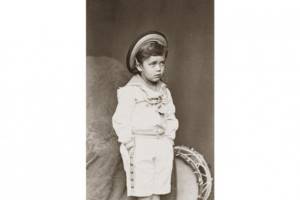
Future Emperor of Russia Nicholas II
- Excuse me, I am the heir to the throne, and you are given two boys who are too early to think about the throne, who must not be let out of your hands and not given any concessions. Keep in mind that neither I nor the Grand Duchess want to turn them into greenhouse flowers. They should be naughty in moderation, play, study, pray well to God and not think about any thrones. Why can’t you, a mother of four children, cope with such a simple task?
– Your Highness, I have four children. Big tail.
- Big tail? - the future Alexander the Third asked and laughed, - that’s right, the tail is big, well, we’ll cut it for you, it will be easier. Tell me about your tail.
The mother began her story.
“Well, there’s nothing to listen to here for a long time,” said Alexander Alexandrovich, “your children are at such an age that it’s time to teach them.” Is it true?
“True,” the mother stammered, “but I have absolutely no means.”
“That’s my concern,” the future tsar interrupted, “Peter and Constantine – to the corps, Elizabeth – to the Pavlovsk Institute.”
- But I don’t have the funds! - exclaimed the mother.
– This is my concern, all that is required from you is your consent.
The mother fell to her knees in tears.
- Your Highness! - she said, - but I still have little Vladimir.
- How old is he? – asked the heir.
- Eighth year.
- Just the same age as Nika. Let him be brought up with my children. And you will not be separated, and mine will be more fun.
“But he has character, Your Highness.”
– What character?
- Pugnacious, Your Highness...
- It's nothing, honey. This is before the first deal. Mine are not heavenly angels either. There are two of them, with united forces they will quickly bring your hero to the Christian faith. Not made from sugar.
“Tomorrow your older children will be taken care of by the right people, but don’t waste time and move in with us.”
“But I also have Annushka, my servant for many years.”
-What do you need servants for? You will have a special footman.
– Your Highness, but I’m used to it.
“It’s great if you’re used to it, but I don’t intend to pay for Annushka.” Do you understand me?
- Your Highness, this is my expense.
- Oh, if this is your expense, then I have nothing. So, madam. Stop this kneeling. Teach the boys well, don’t give them any concessions, enforce them to the fullest extent of the law, don’t encourage laziness in particular. If anything, please contact me directly. I repeat that I don’t need porcelain. I need normal, healthy Russian children. They'll fight, please. But the informer gets the first whip. This is my very first requirement. Now - goodbye. Delay is like irrevocable death. Who said that?
– Your great-grandfather, Your Highness.
“That’s right, bravo,” answered the heir and, letting the crown princess pass in front of him, he left the room.
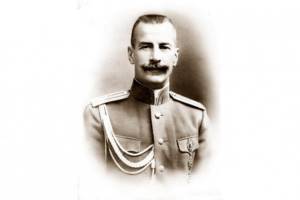
Vladimir Konstantinovich Ollongren
There was something about Niki from a theological school student: he loved to light and place candles in front of icons and carefully monitored their combustion: he extinguished the light if the candle burned out, and tipped the cinder into the hole of the candlestick - he did this earnestly, like a saint. His cherished desire was to put on a golden surplice, stand near the priest in the middle of the church and hold the sacred glass during the anointing of oil. Niki knew the order of the services quite well, was musical and knew how to tactfully and correctly lead the choir. He had a musical memory, and in the bedroom, very often we repeated “Praise” with bass rolls in “Hallelujah”, and especially “angelic forces on Your tomb”. If I started to lie, Niki would say with regent severity: “You’re going to the wrong place!”
His memory was sharp and, putting on a tablecloth instead of a chasuble, he read by heart many petitions from the litanies and, straining his voice to a deacon’s tone, he loved to hum: “About our most pious, most autocratic Great Sovereign... About His Spouse...
And I had to, and definitely in tone, finish: “Lord have mercy...”
2.He was a big and charming naughty man, but he was not ready for punishment. When Alexander caught us playing, I always begged him:
- It's not Nicky's fault.
- It is not your fault? – Alexander asked once.
“It’s not my fault,” Nicky answered, looking straight into his father’s eyes.
- Oh, it’s not your fault: Alexander got angry, - so this is for you personally, and this is for Volodya.
- Why for Volodya? – Nicky asked with offense, scratching his lower back.
– Because Volodya doesn’t hide behind others. Volodya is a boy, and you are a girl.
“I’m not a girl,” Nicky roared, “I’m a boy.”
“Well, well, don’t cry,” my father answered and gave us a new quarter each as a consolation.
I remember how sometimes, when going to the theater, for example, my parents came to us to say goodbye. In those days there was a fashion for long trains, and Maria Feodorovna was obliged to give us all a ride on the train, and she always started with me. I now understand what delicacy it was - and how delicate everything was in this simple family...
Sometimes the grandfather, Emperor Alexander II, came to Anichkov Palace to visit his grandchildren. He smelled charmingly, like a flower. He was cheerful and not pompous. I wanted to look into his eyes endlessly. Those eyes sparkled with a smile that one could give one’s life for. How he knew how to play, what a master he was at funny inventions! He played hide and seek and crawled under the bed. He got down on all fours and was a horse, and his grandchildren were riders, then the horse shouted: “Hold on, I’ll knock you over!” Then he sat down on a chair, moved the lamp to the side, began to move his fingers in a special way, and either a hare or a hunchbacked monk began to run along the wall. We watched with our mouths open and did not breathe. Grandfather began to teach us how to put our fingers together, but we couldn’t do it. He wiped the sweat from his face and said: “Well, then somehow...”
He was happy with children, this grandfather, somehow in a special and funny way knew how to tickle us behind the ears and threw little Ksenia almost to the ceiling, and she, falling into his arms, sobbed deliciously, laughed and screamed : "More more!" The emperor, exhausted, threw himself into a chair, fanned himself with a handkerchief, then regained his strength and took up his gloves. He put two fingers into his glove, and she began to say in a thin voice: “Why does Zhorzhik have a cowlick on the back of his head? Why does Ksenyushka have a red nose?”
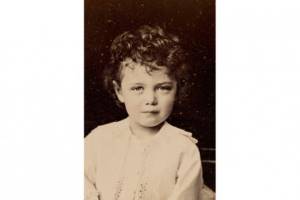
Nicholas II in childhood. 1873
3.One day Zhorzhik said to his grandfather: “Why, grandfather, don’t you have a blue mustache today, did you leave it at home?” Grandfather was taken aback and asked:
- What blue mustache? What are you making up, brother?
“I didn’t make it up,” Zhorzhik persisted.
- But, my friend, I have never had a blue mustache.
- No, it happened. I have seen.
- Where did you see it?
Zhorzhik ran to the nursery and, to my mother’s horror, brought in a popular popular print given to us by a former soldier who was working on repairs in the palace. This picture showed the heroes of the Russian-Turkish war, the Tsar, for some reason with a blue mustache, as well as portraits of Turkish commanders in fezzes.
“You see, they’re blue,” Georgy declared triumphantly.
- You are right. Indeed - blue. Ha ha ha! What is this anyway?
“These are generals,” Nicky spoke bravely, “we know everyone.” You can ask.
- Well, who is this?
Niki reported: “This is His Imperial Highness, the Grand Duke, the heir, Tsarevich Alexander Alexandrovich.”
- And who is this? – the surprised emperor examined.
“This is Osman Pasha,” Zhorzhik entered. - Grandfather, please buy me a hat like his.
- It is forbidden! – Nicky answered sternly. – Faith doesn’t allow it.
“That’s right, 12 points,” said the surprised emperor. We told him about the soldier and getting to know him. After this, grandfather, waving his feather-light handkerchief, began a lively speech: “The best teachers of children, the most talented, were always father’s soldiers, yes, sir! They didn’t philosophize, there was no special pedagogy, they taught from the ABC book, but how they taught! Well done soldier! Tell him my thanks! One such soldier once told me personally with tears in his eyes: where the Russian flag is raised, there it never falls.”
Questions for children:
1. What character trait would the future Emperor Alexander III least like to see in his children?
2. Is it possible to say that the brief instruction to the teacher essentially outlines some of the fundamentals of educating a Russian noble man? What are they?
3. What kind of person did the future Tsar Alexander III appear to us in this episode? What surprised you about him?
4. Did Alexander III consciously introduce a boy from a simple family into his family? For what?
5. Do you know what qualities the adult Nicholas II possessed? Was he courageous, honest, noble?
6. What new things have you learned about the royal family? What were the relationships between its members? How did they treat ordinary people?
7. What did Emperor Alexander II play with his grandchildren? Expensive overseas toys? Why didn't he get angry when he saw his portrait with a blue mustache in the picture?
Personal life of Nicholas II
The first love of the future emperor was ballet dancer Matilda Kshesinskaya. He had an intimate relationship with her with the approval of his parents, concerned about his son’s indifference to the opposite sex, for two years, starting in 1892. However, the connection with the ballerina, the path and favorite of St. Petersburg, for obvious reasons could not result in a legal marriage. Alexei Uchitel’s feature film “Matilda” is dedicated to this page in the life of the emperor (although viewers agree that there is more fiction in this film than historical accuracy).
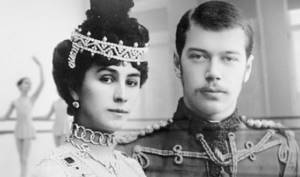
Nicholas II and Matilda Kshesinskaya
In April 1894, in the German city of Coburg, the engagement of the 26-year-old Tsarevich to the 22-year-old Princess Alice of Darmstadt of Hesse, granddaughter of Queen Victoria of England, took place. He later described the event as "wonderful and unforgettable." Their wedding took place in November in the church of the Winter Palace.
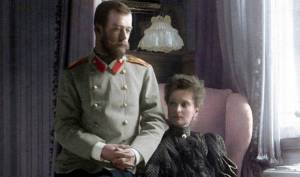
Nicholas II and Alexandra Feodorovna (born Alice Darmstadt of Hesse)
The couple had 5 children: Tatyana, Olga, Maria, Anastasia and Alexey.
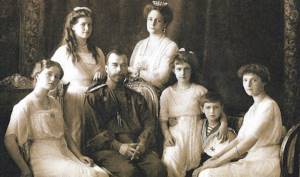
Royal family
Nikolai kept a diary from the age of 9, was interested in photography, cars, loved hunting, cinema, reading books, and smoking cigarettes.
Reign of Nicholas II
Meanwhile, the 20th century arrived, and with it the global economic crisis, decline in production, and unemployment. In St. Petersburg, workers' strikes began to gain momentum, and the situation in the Far East became more and more tense. On January 26, 1904, the Russo-Japanese War began. It began with significant losses for Russia: Japanese destroyers, having carried out a torpedo attack, disabled the three best ships of the Russian fleet. Military failures followed each other: the surrender of Port Arthur, defeats at Mukden, and in the Tsushima naval battle. On August 23, 1905, as a result of negotiations led by Sergei Yulievich Witte, a peace treaty was signed between Japan and Russia. This happened at the height of the First Russian Revolution, which began with Bloody Sunday.
Railroad workers' strikes, strikes in factories and factories, uprisings in the army and navy - the whole country was engulfed in chaos. Nicholas II and his entourage considered two ways to suppress sedition: by force or through concessions. The king preferred the second option. On October 17, 1905, the Highest Manifesto on the improvement of state order was promulgated. However, the confrontation in the country continued. Of all the Russian provinces, only one was relatively calm - Saratov. Nicholas II summoned the Saratov governor Pyotr Arkadyevich Stolypin to St. Petersburg and offered him the post of Minister of Internal Affairs. Stolypin agreed. With the help of anti-terrorism measures and military courts, Pyotr Arkadyevich managed to contain the revolution for some time. Following this, he began to implement large-scale agrarian reform.
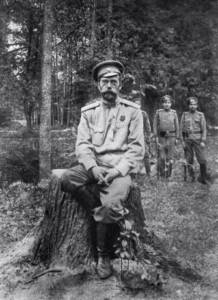
Nicholas II, 1917. (wikipedia.org)
In the summer of 1914, despite the peacekeeping efforts of Nicholas II, Russia found itself drawn into a world war. Oddly enough, the country greeted the news with great enthusiasm. The Russian army initially advanced significantly into enemy territory. But then the situation on the fronts changed. The positional war, which both sides switched to by the end of 1915, completely exhausted Russia's forces.
Death of Nicholas II
After the abdication of the autocrat, power in Russia passed to the Provisional Government. According to his decision, on March 8, 1917, upon arrival in Tsarskoe Selo, Nikolai Alexandrovich along with his household were arrested. On August 1, the royal family was exiled to Tobolsk, ostensibly for security reasons - the Germans were stubbornly advancing towards the Russian capital, where anarchy reigned.
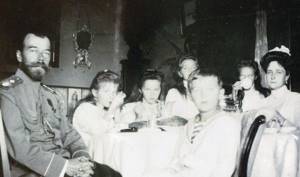
In April 1918, the royal family was exiled to Yekaterinburg.
In April 1918, the former monarch and his wife, their children and several loyal servants were sent to Yekaterinburg by order of the Bolshevik government under the leadership of Vladimir Lenin. With the sanction of the leader of the revolution (although this fact is disputed by a number of historians), on the night of July 17, in the house where they were kept in captivity, all the prisoners were shot without a court verdict. Murder of the royal family In 1981, the family of the last monarch was canonized by the Russian Orthodox Church abroad and in 2000 in the Russian Federation.
